Playwrights on Playwriting
OTHER BOOKS BY TOBY COLE
Acting: A Handbook of the Stanislavski Method
Directors on Directing: A Source Book of the Modern Theater (with HELEN KRICH CHINOY)
Actors on Acting: The Theories, Techniques, and Practices of the Great Actors of All Time as Told in Their Own Words (with HELEN KRICH CHINOY)
Florence: A Travelers Anthology
Venice: A Portable Reader
Playwrights on Playwriting
From Ibsen to Ionesco
Edited by
TOBY COLE
Introduction by
JOHN GASSNER

For Aron and Johnny
who helped the most
First Cooper Square Press edition 2001
This Cooper Square Press paperback edition of Playwrights on Playwriting is an unabridged republication of the edition first published in New York in 1960. It is reprinted by arrangement with the editor.
Copyright 1960, renewed 1988 by Toby Cole
All rights reserved.
No part of this book may be reproduced in any form or by any electronic or mechanical means, including information storage and retrieval systems, without written permission from the publisher, except by a reviewer who may quote passages in a review.
Published by Cooper Square Press
An Imprint of the Rowman & Littlefield Publishing Group
150 Fifth Avenue, Suite 817
New York, New York 10011
Distributed by National Book Network
Library of Congress Cataloging-in-Publication Data
Playwrights on playwriting : from Ibsen to Ionesco / edited by Toby Cole; introduction by John Gassner.
p. cm.
Originally published: New York : Hill and Wang, 1960.
Includes bibliographical references.
ISBN: 978-0-8154-1141-3
1. DramaTechnique. I. Cole, Toby, 1916
PN1661.P625 2001
 The paper used in this publication meets the minimum requirements of American National Standard for Information SciencesPermanence of Paper for Printed Library Materials, ANSI/NISO Z39.481992.
The paper used in this publication meets the minimum requirements of American National Standard for Information SciencesPermanence of Paper for Printed Library Materials, ANSI/NISO Z39.481992.
Manufactured in the United States of America.
PREFACE
MODERN DRAMATISTS have freely exercised the privilege oi fame to express their views of life on both sides of the theatres curtain. A book drawn from these comments would be many times the size of this one; but its contribution to our topic would be peripheral. A surprisingly smaller group of playwrights have addressed themselves centrally to the art and craft of playwriting. They are represented here.
Most of the acknowledged masters are present. But great gift in playwriting is not always accompanied by acuity in formulating dramatic theory. In some instances we encounter major statements by playwrights whose plays were not equal to their precepts. Zolas naturalist manifesto reminds us that innovators are sometimes outdistanced by followers who benefit by the formers extension of dramatic form when, as Strindberg says, the new wine has burst the old bottles.
, that dates given after the titles represent the year in which the selection was written, rather than the time of composition or production of the plays discussed.
My task was singularly favored in aim and scope by the personal encouragement and aid of two of our finest scholar-critics: Eric Bentley, Brander Matthews Professor of Dramatic Literature at Columbia University, and John Gassner, Sterling Professor of Playwriting and Dramatic Literature at Yale University. I am deeply grateful to them both.
Robert Corrigan, editor of the Tulane Drama Review, generously gave me first call on the Reviews valuable Documents Series. From this source came Strindbergs On Modern Drama and Modern Theatre, and essays by Toller and Duerrenmatt translated by Brge Geds Madsen, Marketa Goetz, and Dr. Gerhard Nellhaus, respectively.
I should like to express my appreciation to Joseph. M. Bernstein for his valuable counsel on editorial matters as well as his translations of Giraudoux, Cocteau, and Garca Lorca.
Thanks are due to Evert Sprinchorn of Vassar College who brought to my attention and translated the Ibsen Notes on Hedda Gabler, and corrected other items from the Danish and Norwegian; to Samuel Draper for a new rendering of Zolas Naturalism on the Stage; to John Willett for the first publication rights to his translation of Brechtfs A Short Organum for the Theatre; to Eric Bentley, once again, for his selection from Hebbels Journals and contributions to Brechts Organum.
Kind consent for the use of material was given by Francisco Garca Lorca, Jean-Pierre Giraudoux, Mrs. Eugene ONeill, Jean Cocteau, Eugene Ionesco, and various publishers who are acknowledged throughout the volume.
Finally, in a personal vein, I want to thank my sister-in-law, Helen Krich Chinoy of the Smith College Theatre Department.
TOBY COLE
CONTENTS
HENRIK IBSEN
MILE ZOLA
AUGUST STRINDBERG
ANTON CHEKHOV
MAURICE MAETERLINCK
WILLIAM B. YEATS
JOHN GALSWORTHY
BERNARD SHAW
FEDERICO GARCA LORCA
JEAN GIRAUDOUX
EUGENE ONEILL
BERTOLT BRECHT
THORNTON WILDER
JEAN-PAUL SARTRE
CHRISTOPHER FRY
FRIEDRICH DUERRENMATT
JOHN OSBORNE
EUGENE IONESCO
HENRIK IBSEN
AUGUST STRINDBERG
ANTON CHEKHOV
WILLIAM ARCHERBERNARD SHAW
JOHN MILLINGTON SYNGE
LUIGI PIRANDELLO
ERNST TOLLER
FEDERICO GARCA LORCA
EUGENE ONEILL
JEAN COCTEAU
SEAN OCASEY
T. S. ELIOT
ARTHUR MILLER
TENNESSEE WILLIAMS
EUGENE IONESCO
INTRODUCTION
(1)
IT IS no secret to anyone familiar with the theatre that modern playwrights have been a self-conscious breed. Anyone whose wares are so conspicuously on display and make such excellent targets for critical marksmanship is bound to be self-conscious. Modern playwriting, moreover, came into being during the latter half of the nineteenth century when intellectual conflict was making itself felt in the theatre and writers were even becoming oracular. Old dispensations in the arts were being challenged; new dispensations were being explained and defended. The age of literary criticism was moving toward high noon. Critics were becoming playwrights, play producers, or stage directors; and it followed that the playwright could turn critic if the critic could turn playwright. Imbued with new intellectualism and estheticism, showmanship itselfonce a simple, if not indeed simpleminded, activitybegan to buzz with theories supplied by scenic artists such as Appia and Craig and directors such as Antoine and Stanislavsky. Objectives were constantly affirmed or revised in a theatrical world from which improvisation and intellectual innocence had departed while ideas and ideologies multiplied. The modern theatre, it would seem, was born with a program, and it will probably end with one.
From the abundant literature on the modem drama written by the playwrights themselves Toby Cole has compiled a volume rich in matter and provocative in manner. To read the discourse of intelligent writers on their principles and problems is to observe the modern drama in the making. We merely allow for the fact that there is always a breach between ambition and attainment, and especially so in an art so utterly dependent upon stage production and the intervention of the actor. The danger of succumbing to the intentional fallacy need not deter us from attending to the playwrights objectives once it is understood that we shall judge the play rather than the authors intentions. It is not likely, moreover, that their pronouncements will make bigoted converts of us and limit our horizons or so bewilder us with their variety as to make us incapable of judgment. We live in an eclectic age, are unlikely to be seduced into exclusive dramatic theory, and have been inured to contradictions.
Next page

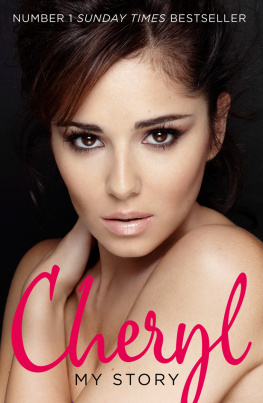
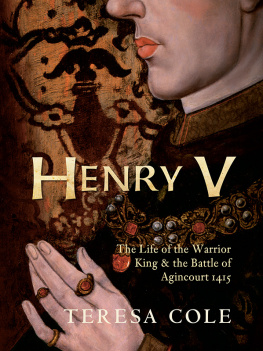
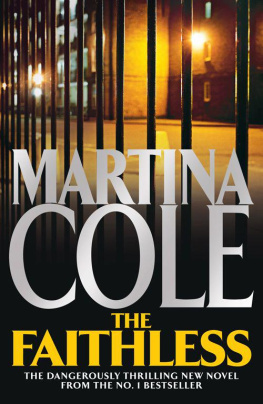

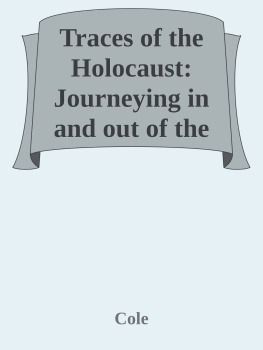
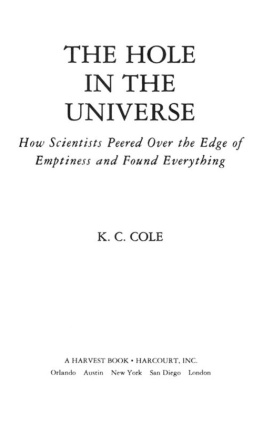
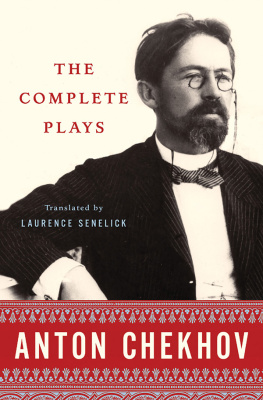
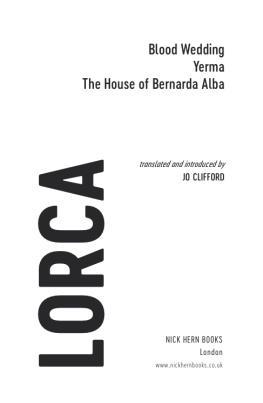
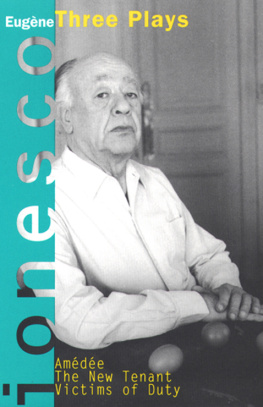
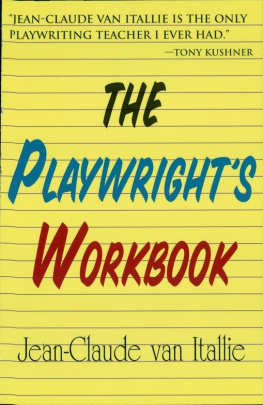
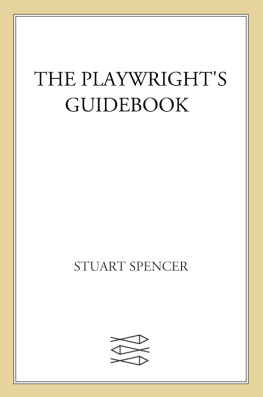
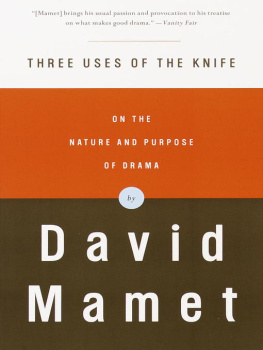

 The paper used in this publication meets the minimum requirements of American National Standard for Information SciencesPermanence of Paper for Printed Library Materials, ANSI/NISO Z39.481992.
The paper used in this publication meets the minimum requirements of American National Standard for Information SciencesPermanence of Paper for Printed Library Materials, ANSI/NISO Z39.481992.